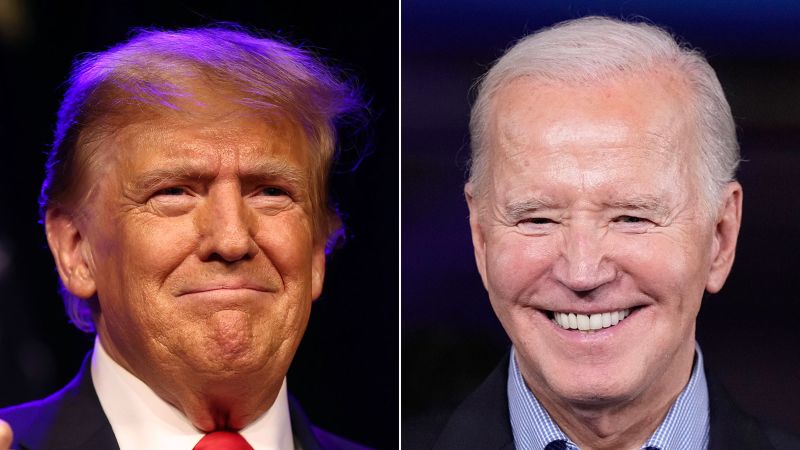
Biden and Trump’s post-Super Tuesday campaign schedules are a study in contrasts
CNN
Joe Biden has been to every top battleground state but one since the Super Tuesday primaries. He has also been on unannounced calls pushing negotiators toward a Gaza ceasefire, among other official White House duties.
Joe Biden has been to every top battleground state but one since the Super Tuesday primaries. He has also been on unannounced calls pushing negotiators toward a Gaza ceasefire, among other official White House duties. Donald Trump has held one rally in a battleground state in those two and a half weeks, and shifted another to Ohio, in part to save on costs. He has also played in two golf tournaments at his Palm Beach golf club, among other activities at his club, like lunches with potential campaign donors that aides feel are about to start paying off big. The two oldest presidential candidates ever are always touchy about any mention of their own stamina or acuity. And they’re each eager to take shots at the other about who’s sleepy and who can keep up. But the two weeks since they essentially wrapped up their nominations show very different bets being placed so far – and the very different challenges they face. Already this year, both men have shown reason to doubt the value of traditional campaigning: Biden won the New Hampshire primary as a write-in candidate while refusing to visit because of a dispute with the state over the timing of its election. Trump steamrolled his opposition despite being the candidate who spent the least time on the ground. With two candidates this well known in a country more polarized than ever, no one knows how much campaigning will matter this year, especially with political operatives across the spectrum trying to figure out what tactics still work post-pandemic.

Jeffrey Epstein survivors are slamming the Justice Department’s partial release of the Epstein files that began last Friday, contending that contrary to what is mandated by law, the department’s disclosures so far have been incomplete and improperly redacted — and challenging for the survivors to navigate as they search for information about their own cases.

The Providence mayor wants the Reddit tipster to get a $50,000 FBI reward. It might not be so simple
His detailed tip helped lead investigators to the gunman behind the deadly Brown University shooting – but whether the tipster known only as “John” will ever receive the $50,000 reward offered by the FBI is still an open question.











